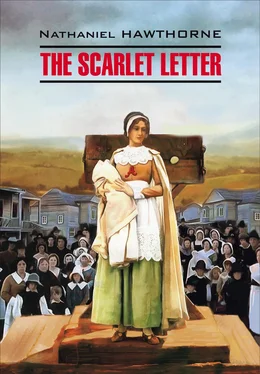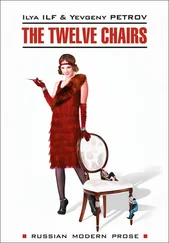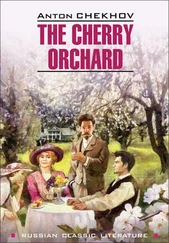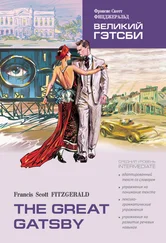Nathaniel Hawthorne / Натаниель Готорн
The Scarlet Letter / Алая буква
Подготовка текста, комментарии и словарь Д. В. Павлоцкого
© КАРО, 2016
A throng of bearded men, in sad-coloured garments and grey steeple-crowned hats, intermixed with women, some wearing hoods, and others bareheaded, was assembled in front of a wooden edifice, the door of which was heavily timbered with oak, and studded with iron spikes.
The founders of a new colony, whatever Utopia of human virtue and happiness they might originally project, have invariably recognised it among their earliest practical necessities to allot a portion of the virgin soil as a cemetery, and another portion as the site of a prison. In accordance with this rule it may safely be assumed that the forefathers of Boston had built the first prison-house somewhere in the Vicinity of Cornhill, almost as seasonably as they marked out the first burial-ground, on Isaac Johnson’s [1] Isaac Johnson – Айзек Джонсон, один из ранних колонистов, обосновавшихся в Бостоне
lot, and round about his grave, which subsequently became the nucleus of all the congregated sepulchres in the old churchyard of King’s Chapel [2] King’s Chapel – Королевская церковь, старинная церковь в Бостоне
. Certain it is that, some fifteen or twenty years after the settlement of the town, the wooden jail was already marked with weather-stains and other indications of age, which gave a yet darker aspect to its beetle-browed and gloomy front. Like all that pertains to crime, it seemed never to have known a youthful era. Before this ugly edifice, and between it and the wheel-track of the street, was a grass-plot, much overgrown with unsightly vegetation, which evidently found something congenial in the soil that had so early borne the black flower of civilised society, a prison. But on one side of the portal, and rooted almost at the threshold, was a wild rose-bush with its delicate gems, which might be imagined to offer their fragrance and fragile beauty to the prisoner as he went in, and to the condemned criminal as he came forth to his doom, in token that the deep heart of Nature could pity and be kind to him.
This rose-bush, by a strange chance, has been kept alive in history; but whether it had merely survived out of the stern old wilderness, so long after the fall of the gigantic pines and oaks that originally overshadowed it, or whether, as there is fair authority for believing, it had sprung up under the footsteps of the sainted Ann Hutchinson [3] Ann Hutchinson – Энн Хетчинсон (1591–1643), глава религиозной секты антиномистов, утверждавших, что верующий сливается со святым духом без посредства церкви и священников. В 1636–1637 годах ее судили и приговорили к отлучению от церкви
as she entered the prison-door, we shall not take upon us to determine. Finding it so directly on the threshold of our narrative, which is now about to issue from that inauspicious portal, we could hardly do otherwise than pluck one of its flowers, and present it to the reader. It may serve, let us hope, to symbolise some sweet moral blossom that may be found along the track, or relieve the darkening close of a tale of human frailty and sorrow.
The grass-plot before the jail, in Prison Lane, on a certain summer morning, not less than two centuries ago, was occupied by a pretty large number of the inhabitants of Boston, all with their eyes intently fastened on the iron-clamped oaken door. Amongst any other population, or at a later period in the history of New England, the grim rigidity that petrified the bearded physiognomies of these good people would have augured some awful business in hand. But, in that early severity of the Puritan character, it might be that a sluggish bond-servant, or an undutiful child, whom his parents had given over to the civil authority, was to be corrected at the whipping-post. It might be that an Antinomian, a Quaker [4] a Quaker – квакеры, религиозная секта, основанная Джорджем Фоксом (1624–1691), протестантское христианское движение
, or other heterodox religionist, was to be scourged out of the town, or an idle or vagrant Indian, whom the white man’s firewater had made riotous about the streets. It might be, too, that a witch, like old Mistress Hibbins, was to die upon the gallows. In either case, there was very much the same solemnity of demeanour on the part of the spectators, as befitted a people among whom religion and law were almost identical, and in whose character both were so thoroughly interfused, that the mildest and severest acts of public discipline were alike made venerable and awful. On the other hand, a penalty which, in our days, would infer a degree of mocking infamy and ridicule, might then be invested with almost as stern a dignity as the punishment of death itself.
It was a circumstance to be noted on the summer morning when our story begins its course, that the women, of whom there were several in the crowd, appeared to take a peculiar interest in whatever penal infliction might be expected to ensue. The age had not so much refinement, that any sense of impropriety restrained the wearers of petticoat and farthingale from stepping forth into the public ways, and wedging their not unsubstantial persons, if occasion were, into the throng nearest to the scaffold at an execution. Morally, as well as materially, there was a coarser fibre in those wives and maidens of old English birth and breeding than in their fair descendants.
“Goodwives,” said a hard-featured dame of fifty, “I’ll tell ye a piece of my mind. It would be greatly for the public behoof if we women, being of mature age and church-members in good repute, should have the handling of such malefactresses as this Hester Prynne. If the hussy stood up for judgment before us five, that are now here in a knot together, would she come off with such a sentence as the worshipful magistrates have awarded? Marry, I trow not.”
“People say,” said another, “that the Reverend Master Dimmesdale, her godly pastor, takes it very grievously to heart that such a scandal should have come upon his congregation.”
“The magistrates are God-fearing gentlemen, but merciful overmuch,” added a third autumnal matron. “At the very least, they should have put the brand of a hot iron on Hester Prynne’s forehead. But little will she care what they put upon the bodice of her gown! Why, look you, she may cover it with a brooch, or such like heathenish adornment, and so walk the streets as brave as ever!”
“Ah, but,” interposed, more softly, a young wife, holding a child by the hand, “let her cover the mark as she will, the pang of it will be always in her heart.”
“What do we talk of marks and brands, whether on the bodice of her gown or the flesh of her forehead?” cried another female, the ugliest as well as the most pitiless of these self-constituted judges. “This woman has brought shame upon us all, and ought to die; is there not law for it? Truly there is, both in the Scripture and the statute-book. Then let the magistrates, who have made it of no effect, thank themselves if their own wives and daughters go astray.”
“Mercy on us, goodwife!” exclaimed a man in the crowd, “is there no virtue in woman, save what springs from a wholesome fear of the gallows? Hush now, gossips, for here comes Mistress Prynne herself.”
Читать дальше












